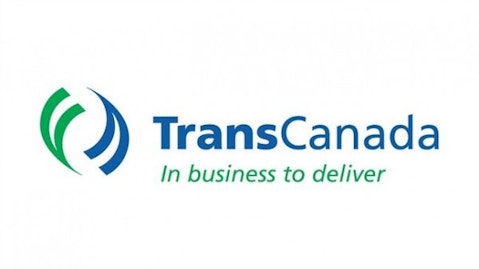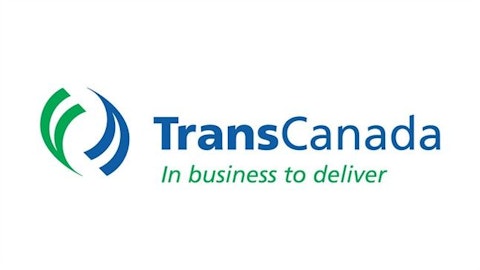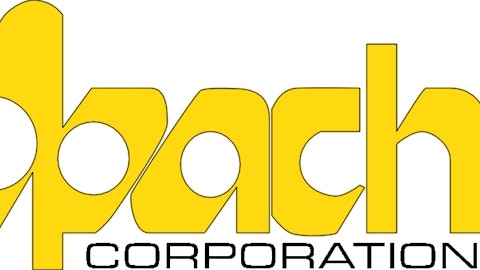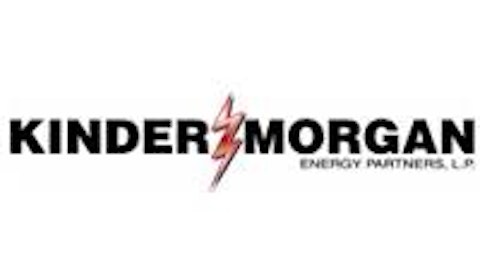By now, you have probably heard about TransCanada Corporation (USA) (NYSE:TRP)‘s Keystone XL pipeline. For even the most casual observer of the energy industry, this project has been the spark that has ignited political debates ranging from environmental hazards, emission of greenhouse gasses, and North American energy independence. In last Tuesday’s speech on climate change, President Barack Obama made it clear that “[allowing] the Keystone XL pipeline to be built requires a finding [from the Department of State] that doing so will be in our nations interest…”.
The environmental concerns regarding the construction of this pipeline will be significant factors in whether it gets approved, but the story is so much more than that. To help better understand the entire story of the Keystone XL pipeline, we at the Motley Fool want to give investors a better look at what the it means for all parties involved. In this third part of a series, we will take a look at what the pipeline means for U.S. refiners, and at the possible outcomes whether it gets rejected or approved.
Who does this affect?
The Keystone XL pipeline, and much of the other major oil sands pipelines between the United States and Canada, can only physically deliver to three distinct regions: Midwest, Rocky Mountains, and Gulf Coast. These three regions, in what could be called the “pipeline corridor”, are responsible for 72% of all refining capacity in the U.S.

While it is possible that Keystone XL could deliver crude to the Midwest and Rocky Mountain regions, those two regions already receive nearly all of their imports from Canada.

Source: U.S. Energy Information Administration.
Keystone XL might help move more oil away from the Midwest and Rocky Mountain regions to the Gulf Coast in order to help alleviate the glut of supply there already, but it’s unlikely that the Keystone XL will have a profound impact on the current operations in these regions. So the refineries that really care about the fate of this project are exclusively on the Gulf Coast.
| Top 10 Gulf Coast Refiners | Total Refining Capacity (Mbpd) |
| 1.) Royal Dutch Shell* | 1,520 |
| 2.) ExxonMobil | 1,406 |
| 3.) Valero (NYSE:VLO) | 1,089 |
| 4.) Phillips 66 | 738 |
| 5.) Citgo** | 590 |
| 6.) Marathon Petroleum (NYSE:MPC) | 522 |
| 7.) BP (NYSE:BP) | 460 |
| 8.) Chevron (NYSE:CVX) | 330 |
| 9.) Premcor Refining Group (private) | 290 |
| 10.) Flint Hills Resources LP*** | 289 |
Source: U.S. Energy Information Administration. * Royal Dutch Shell plc (ADR) (NYSE:RDS.A) owns 50% in a joint venture with Saudi Aramco for Motiva Enterprises and 50% of Deer Park Refining LTD. **Wholly owned by Petroleos de Venezuela S.A. ***Wholly owned by Koch Industries (private).
With the possible exception of Citgo’s and Royal Dutch Shell plc (ADR) (NYSE:RDS.A)’s refineries — which have deep ties to Venezuelan and Saudi national oil companies, respectively — these refiners will look to use the Keystone XL to replace heavy oil from other sources, such as Saudi Arabia, Mexico, and Venezuela. While we might call this North American energy independence, more importantly it provides the Gulf Coast with more options when it needs to purchase crude oil, which gives companies a better competitive pricing advantage.
If Keystone XL gets built
If the current difference in price between Canadian oil sands and other heavy oil sources remains at current levels, refiners have the potential to save over $9 billion a year in feedstock costs. This presents a major upside for refiners that might enable them to continue the impressive run they have had the the past several months.
Of course, some will benefit more than others. There are 24 different companies that have refining facilities in the Gulf Coast region, but the bulk of that capacity is limited to a small handful of players. The 10 companies listed above are responsible for about 86% of all refining capacity in the Gulf Coast region.
With so much to gain, it shouldn’t come as a surprise that several oil companies have come out in support of building the Keystone XL pipeline. Of the 10 companies listed above Chevron Corporation (NYSE:CVX), Exxon Mobil Corporation (NYSE:XOM), Marathon Petroleum Corp (NYSE:MPC), Shell, and former Phillips 66 (NYSE:PSX) parent ConocoPhillips (NYSE:COP) have joined TransCanada Corporation (USA) (NYSE:TRP) in the lobbying effort to have the pipeline built. Combined, these six companies spent $33.2 million dollars in 2012 on lobbying in Washington. While not all of it was specifically spent on Keystone XL, throwing that kind of money around can certainly help the cause.
If Keystone XL gets rejected
To put a positive spin on things, the possibility of the pipeline being rejected has little downside risk if current market conditions were to persist. Business would probably continue as it has in the Gulf for the foreseeable future where Orinoco Belt heavy from Venezuela, Maya heavy from Mexico, and Saudi heavy fuel the heavy-oil needs of the U.S.
This also assumes that prices for these imports will not significantly increase, which is extremely difficult to predict. Both Mexico’s and Venezuela’s national oil companies have struggled mightily in the past couple of years to compete on the open market, and their production levels have slipped for several years. If this trend continues, it could lead to higher prices for heavy oil, which would either cost refiners more for feedstock, or would give further incentive to build a pipeline from Canada.
What a Fool believes
When connecting the dots in the Keystone XL story, it becomes obvious that refiners are one of the most directly effected parts of the industry. But there is much more to the Keystone XL story. Stay tuned to read about how other parts of the energy space could see profound effects on their operations due to this controversial pipeline.
The article Everything You Need to Know About Keystone XL: Why U.S. Refiners Care originally appeared on Fool.com.
Fool contributor Tyler Crowe has no position in any stocks mentioned. You can follow him at Fool.com under the handle TMFDirtyBird, on Google +, or on Twitter, @TylerCroweFool. The Motley Fool recommends Chevron and Spectra Energy (NYSE:SE).
Copyright © 1995 – 2013 The Motley Fool, LLC. All rights reserved. The Motley Fool has a disclosure policy.






